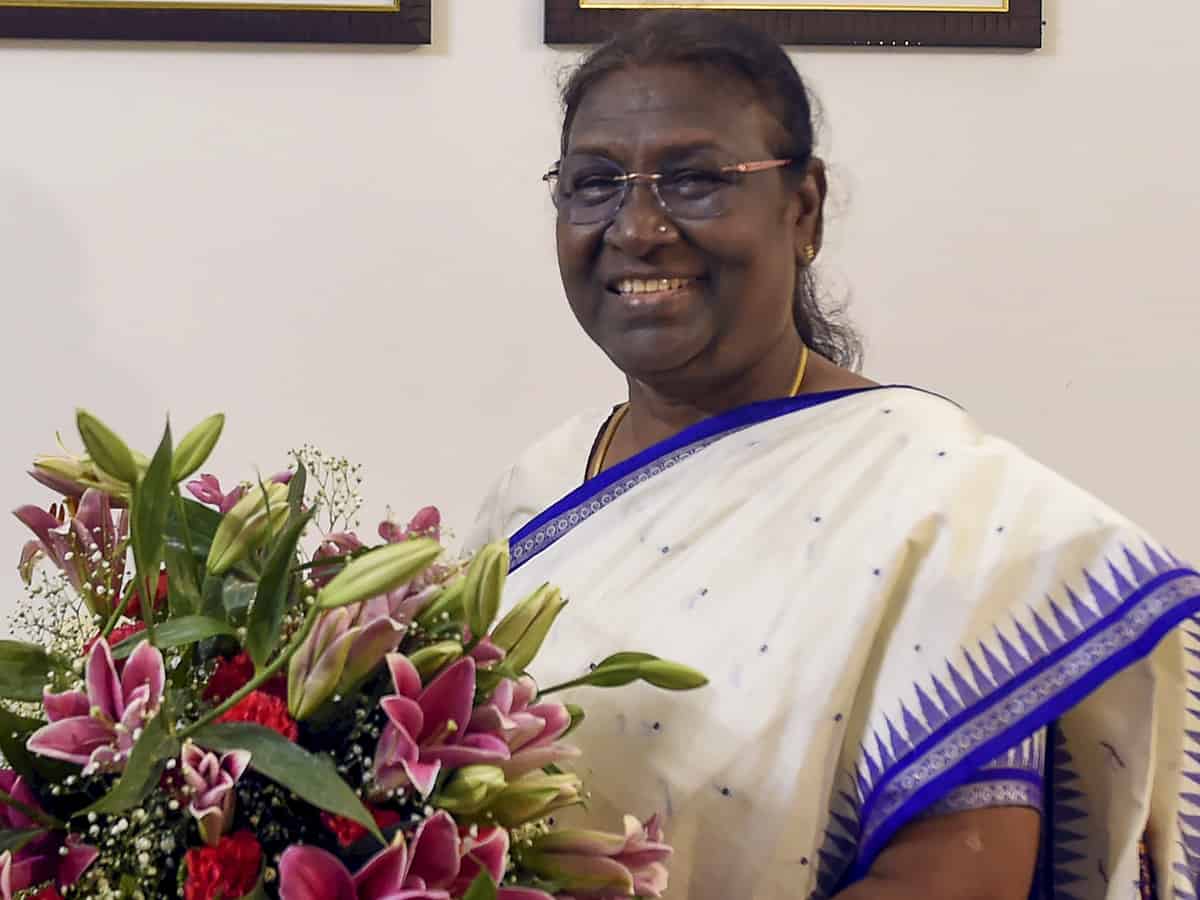
Bengaluru: President Droupadi Murmu on Tuesday called on the scientific community to pursue a path of social responsibility.
“Every challenge makes us think about a need to face and prevent its concurrence. Today we need to prepare ourselves to face not just traditional challenges but the unforeseen ones,” she said while addressing a gathering after inaugurating the Integrated Cryogenic Engines Manufacturing Facility at the Hindustan Aeronautics Limited (HAL) here.
She underlined that technological development should go along with social inclusiveness.
“Science can bring a phenomenon revolution in the lives of the masses. The spirit of indigenousness followed by former Late President Dr Abdul Kalam should be emulated.
“Recently we faced a major threat in the form of Covid-19. The doctors, scientists helped us out of the crisis. Our response to the pandemic has been appreciated everywhere. We have launched the biggest vaccination drive in human history. The data is better than many developed countries,” President Murmu stated.
She described facility’s inauguration a as historic moment as it is not only for HAL and the Indian Space and Research Organization (ISRO), but for the whole country to have the state of the art manufacturing unit of Cryogenic and semi-cryogenic engines.
This will cater to the needs of the Indian space programmes there by aiding to the achievements of our country. “I will congratulate all people associated with this prestigious project,” she explained.
She described HAL as the force behind the armed forces and ISRO as the pride of the nation.
The official statement from HAL stated that, the HAL Aerospace Division manufactures liquid propellant tanks and launch vehicle structures of PSLV, GSLV MK-II, GSLV Mk-III and also stage integration for GSLV Mk-II.
The Aerospace Division entering into manufacture of Cryogenic Engines is a major step in technology up-gradation cum modernization.
Cryogenic engines are the most widely used all over the world in launch vehicles. Due to its complex nature, till date only the US, France, Japan, China and Russia have mastered the technology.
On January 5, 2014, India successfully flew GSLV-D5 with a cryogenic engine (made by ISRO through private industries) and became the sixth country in developing cryogenic engines.
Space exploration in the future is mostly dependent upon cryogenic technology.



